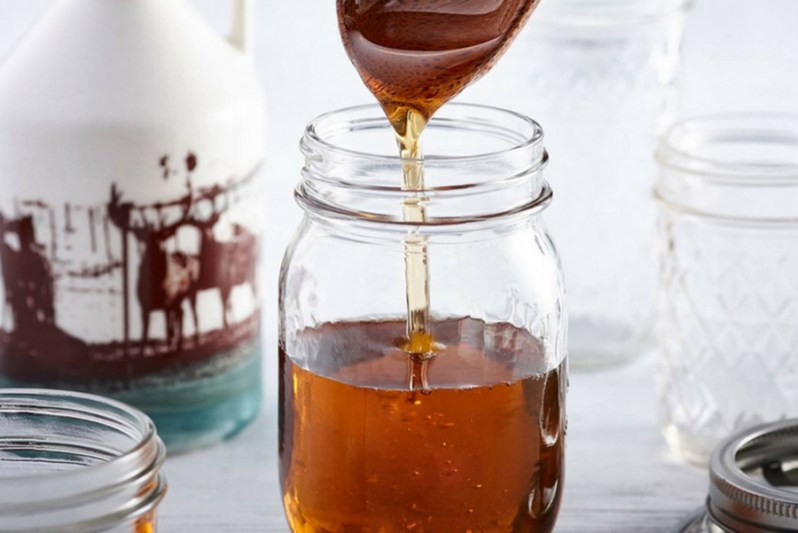Maple syrup isn’t given enough credit. It’s a natural sugar that comes from trees and tastes of woodsy caramel deliciousness. Vince Vaughn was quoted proclaiming his love for maple syrup saying, “I love maple syrup. I love maple syrup on pancakes. I love it on pizza.” And Vaughn was on to something because athletes are now drinking maple syrup during tough workouts.
In March 2019, one of the largest gatherings of the scientific community in the world came together to talk solely about maple syrup. But why, you may be asking. We were.
New research found that nutrients, minerals, and phytonutrients in maple syrup may fight inflammation and help people sustain intense workouts. Meaning a natural, plant-based substance could be used as a performance aid without the addition of processed sugars.

Researchers used Québec Maple Syrup and investigated the chemical constituents in the product. First, they took it to the track. After testing maple syrup alongside commercial sports drinks, experts found that Canadian syrup was just as beneficial for sustained athletic performance. In the study, 75 participants exercised for two hours and were given either maple syrup or a sports drink, both with an equal amount of carbohydrates – the key to consistent improved athletic performance.
Maple syrup held up and was comparable to commercial sports drinks. Which is great news for Vince Vaughn. Keep dousing that pizza. It’s money.
Experts believe that since maple syrup is made largely from sucrose, it’s easily absorbed in the gut and then used by the muscles for exercise. Compared to cane sugar or artificial sugar, the sucrose in maple syrup is au natural and therefore has a lower glycemic index. Bonus: maple syrup is full of antioxidants and other nutrients that work double-duty to potentially fight inflammation.
“Using a natural product that athletes enjoy and are inclined to drink more of during exercise can be key to maintaining fluid balance.”
But wait. During intense exercise do we crave the taste of yellow Gatorade or blue Powerade more than pancake sauce? Researchers studied this as well and found participants were down with the sweet sap.
“Results showed maple syrup to have less of an acidic taste than a commercial sports drink, with a similar overall appreciation. Using a natural product that athletes enjoy and are inclined to drink more of during exercise can be key to maintaining fluid balance,” said Dr. Jonathan Tremblay, Ph.D., associate professor at the University of Montreal, School of Kinesiology and Exercise Science.
Apart from getting enough sugar to sustain athletic effort, maple syrup or diluted maple water fits larger trends rising in the beverage category, like a preference for natural, plant-based products free of additives. Pure maple syrup is, after all, vegan and contains no coloring, additives, gluten, or processed sugars. (We wonder if our water bottle top will fit on the maple syrup jar…)

In terms of fighting inflammation, Québec Maple Syrup was also shown to be rich in polyphenols. Both exercising and eating foods rich in these plant-based micro-nutrients are recommended ways to prevent and fight chronic inflammation. And we’ll be honest, it’s easier eating maple syrup than vegetables sometimes, amiright?
Foods with polyphenols may also benefit the immune system. But back to working out harder and eating more maple syrup. Try it for yourself, swapping a sports drink for pure maple syrup. Either grab a jar of Canadian maple syrup or try a brand like Untapped, which makes ready-to-slurp maple pouches specifically for sustaining athletic performance.
Keep in mind, your workout may require more than one boost to keep you balanced and trucking. Sweating a ton will deplete the body of electrolytes, so a shot of maple syrup and an electrolyte tablet like Nuun may be the perfect combo for PR.
Or try Vaughn’s approach and pack a slice of maple syrup pizza. Hey, you never know.


